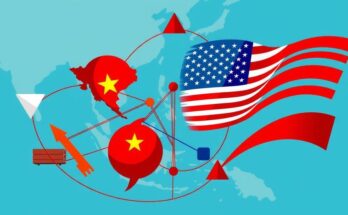In reaction to President Trump’s intensified deportation efforts, various countries have responded differently. While some nations negotiate to support returnees, others, like Honduras, actively resist U.S. policies. Overall, the responses highlight the complexities of international relations amid U.S. immigration enforcement.
In response to President Trump’s heightened immigration enforcement and threats of deportation, various nations are reacting differently. The U.S. Immigration and Customs Enforcement (ICE) has executed over 3,500 arrests and initiated deportation flights carrying unauthorized immigrants to their home countries. The complexities of these international dynamics are reflected in how affected countries negotiate, comply, or resist Trump’s immigration policies.
Mexico, which hosts over four million unauthorized immigrants in the U.S., has agreed to accept deported nationals while also setting limits on non-Mexican deportees. President Claudia Sheinbaum’s administration has initiated support programs for deportees but remains firm on rejecting non-Mexican immigrants.
In El Salvador, Trump seeks an agreement allowing it to accept deportees from other nations. Although discussions occurred during his first term, the agreement was never finalized. If established, it could potentially benefit unauthorized Venezuelan immigrants, as Venezuela currently does not accept U.S. deportees.
Colombia experienced tensions with the U.S. regarding deportation flights. President Gustavo Petro initially refused to accept deported citizens but later agreed to allow the return of Colombians after a standoff with Trump, demonstrating the complexities and negotiations involved between countries.
China’s response has been limited to accepting only verified citizens from mainland China, indicating a selective approach to immigration issues. There is a growing concern as to whether China will accept migrants from Hong Kong and Taiwan, thus complicating matters further.
Regarding India, Prime Minister Narendra Modi and Trump discussed immigration over the phone. India expressed willingness to take back its nationals, contingent upon the verification of their documentation, yet they remain firm on preventing illegal immigration.
Honduras has adopted a firm stance against Trump’s deportations, with President Xiomara Castro suggesting a reconsideration of cooperation with the U.S. military. This position could potentially pivot Honduras towards seeking assistance from China.
In Brazil, the recent deportation flight revealed that Brazilian authorities are scrutinizing how deportees are treated upon arrival, highlighting broader humanitarian concerns in U.S.-Latin American relations. The Brazilian Ministry of Foreign Affairs has demanded explanations from the U.S. regarding the treatment of deportees.
The Philippines, despite having a minor number of unauthorized immigrants, has not reported significant incidents of arrests since Trump’s inauguration. The Filipino ambassador has encouraged undocumented migrants to voluntarily return to the Philippines prior to any possible deportations, adopting a cautious stance regarding immigration enforcement.
The topic of unauthorized immigration and subsequent deportations has become increasingly significant in U.S. foreign relations, especially with the Trump administration’s promises to enhance immigration enforcement. Countries with significant undocumented populations in the U.S. face mounting pressures to negotiate agreements that either facilitate deportations or provide refuge for their citizens. The responses from these nations reveal a complex interplay of diplomacy, national interests, and humanitarian considerations amid heightened tensions surrounding immigration policy.
The reactions from different countries to President Trump’s threats regarding deportation demonstrate a wide range of diplomatic negotiations and resistance. From Mexico’s conditional acceptance of deportees to Honduras’ pushback against U.S. pressure, countries are balancing their national interests with the implications of U.S. immigration policies. These international dynamics illustrate how immigration continues to shape geopolitical relations, as nations navigate cooperation and resist undue pressure while addressing the challenges posed by unauthorized immigration.
Original Source: www.aljazeera.com




